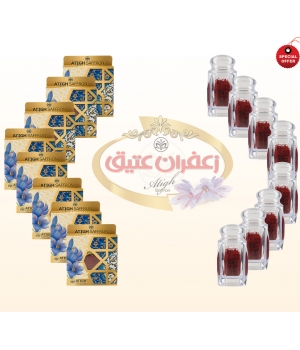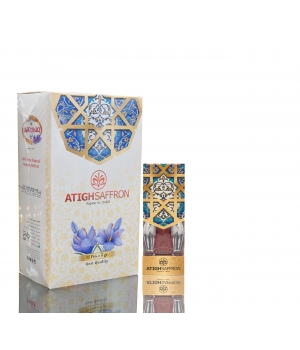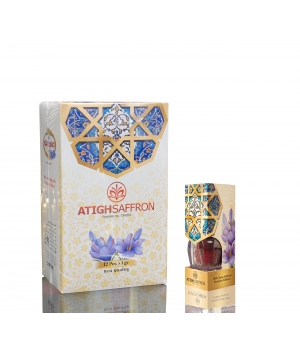Methods
The current article provides a non-systematic review of the available in vitro, in vivo and clinical evidence on the efficacy, safety, and mechanisms of action of saffron and its active ingredients in the treatment of anxiety, depression and other mental disorders.
Results
Several interesting data have been reported about the antidepressant and anti-anxiety properties of saffron, the dried stigmas of Crocus sativus L., in several preclinical and clinical studies. In particular, a number of clinical trials demonstrated that saffron and its active constituents possess antidepressant properties similar to those of current antidepressant medications such as fluoxetine, imipramine and citalopram, but with fewer reported side effects.
Conclusion
Depression and anxiety are common psychological disorders, with depression being one of the top causes of disability in the world. There are many reasons for the development of depression and/or anxiety, including biological, psychological, emotional, and socioeconomic. The serotonergic system likely plays some role in depression, and so does chronic inflammation, especially neural inflammation. Treatment for these disorders remains multi-factorial. Traditional medicinal herbs, such as saffron, have been investigated to determine their potential for supporting mental health.
Research demonstrates that active compounds in saffron (safronal and crocins) inhibit the reuptake of dopamine, serotonin, and norepinephrine. Saffron may also modulate serotonin and dopamine neurotransmission. This is one possible component of saffron under investigation for its potential to support a positive mood and calmness.
Another mechanism behind the potential of saffron to promote mental health is that it supports a healthy inflammatory response.* Studies have found that saffron inhibits nuclear factor kappa B activation and the expression of inflammatory mediators, including tumor necrosis factor-alpha, interleukin (IL)-1 β, IL-6, interferon-gamma, cyclooxygenase 2, and inducible nitric oxide. Clinical studies have found that saffron supplementation reduces markers of inflammation and oxidative stress. This promotion of a normal inflammatory response and support of antioxidant status may influence depression, but it is not the only factor involved in the purported effects of saffron.
A randomized controlled trial demonstrated that crocin supplementation significantly reduced depression symptoms in patients with metabolic syndrome independent of changes to the redox balance of the patients. Several clinical studies support the potential for saffron to promote a positive mood and calmness. One meta-analysis of randomized controlled trials found that consuming saffron led to a significant reduction in scores for depression, anxiety, and sleep quality. Another meta-analysis likewise found benefits from saffron for depression and anxiety, including that of an adjunct therapy to antidepressants. Saffron also had a significant effect on the severity of depression, based on the findings of another meta-analysis.
Depression and anxiety frequently coexist, with a significant majority of patients with one disorder also presenting with symptoms of the other. Saffron may support comorbid depression–anxiety.
A randomized, controlled trial demonstrated that using saffron extract led to significant benefit to comorbid depression–anxiety and sleep disturbance in patients with type 2 diabetes. Likewise, another clinical trial found a significant impact on the scores of depression and anxiety in patients with comorbid depression and anxiety who were otherwise healthy.
Diet and lifestyle factors support mental health in many ways. Adding culinary herbs and spices, such as saffron, as part of a nutritious eating pattern may provide some of the benefits identified in research studies. Some individuals may find supplementing with higher quantities of herbs in supplemental form complements their efforts to support their mental health.





